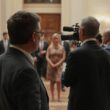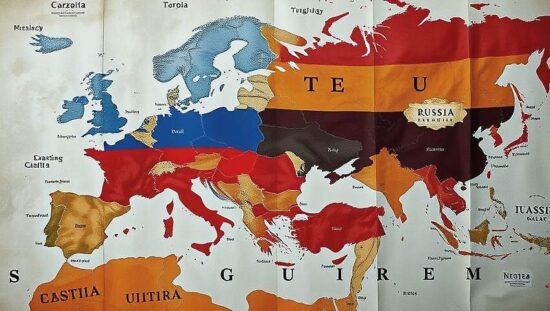According to the Russian Ambassador to Germany, Sergey Netschajev, the Cold War is once again a reality. “We already have a Cold War, even in a more severe form” said Netschajev to the “New Osnabruecker Zeitung” (Thursday edition). “In the 1970s, there was at least a political dialogue and economic cooperation. Now, everything is practically set to zero.” This was not due to Russian initiative, added the ambassador.
On the 80th anniversary of the end of the war in Europe, Netschajev criticized the memory culture of World War II. “Sometimes it is overlooked that the decisive role in this war was played by the Red Army” said the 71-year-old to the NOZ. His exclusion from the commemoration in the Bundestag was commented on by him with: “Celebrating a Day of Liberation without Liberators is at least strange.” In Russia, the memory of World War II is “alive” and “holy”. After all, 27 million Soviet citizens lost their lives: “We will not forget that.”
However, Russia has “paved the way for reconciliation after the war” said the ambassador: “We have extended our hands over the war graves and offered former enemies good neighborhood, partnership and cooperation. We have made reunification possible. We have not burned a single bridge with Germany.”
The term “aggression war” for the war in Ukraine, Netschajev rejected again. “We did not start this war – we reacted to the security risk and the oppression and terror against the Russian-speaking population in the eastern Ukrainian regions” said he to the NOZ. For fears that Russia could use this justification to attack other countries, there is no reason. “We have said that we do not seek a conflict with NATO countries. We would only go to war if we are attacked” said Netschajev.
That the memory of the Hitler-Stalin Pact of 1939, in the aftermath of which the Soviet Union occupied eastern Poland and the Baltic countries, still stokes fears in Eastern Europe, is just as unfounded: This was then a “forced step” that served to “somehow guarantee our security interests and delay the war that stood on the threshold of our country.” Furthermore, Poland after the war “received so many territories that the Poles hardly have anything to complain about.”
A future European peace order without or even against Russia, he said, is “practically hardly possible.” Russia advocates for a “Eurasian peace order” whose construction still needs to be worked out. “Europe does not exclude us” said the ambassador: “But it may not be like it used to be.





